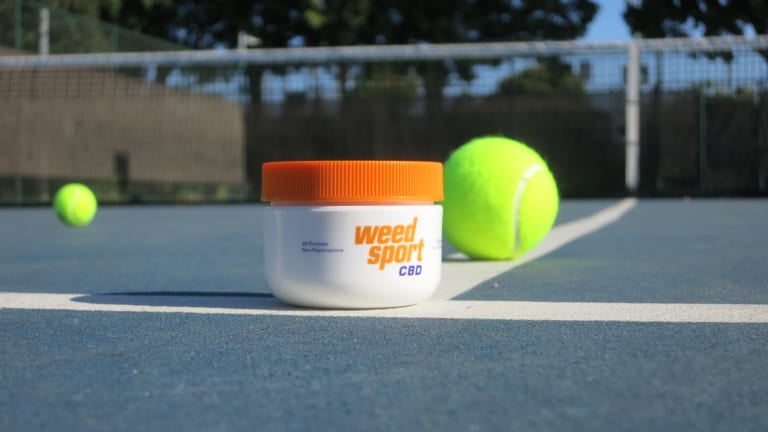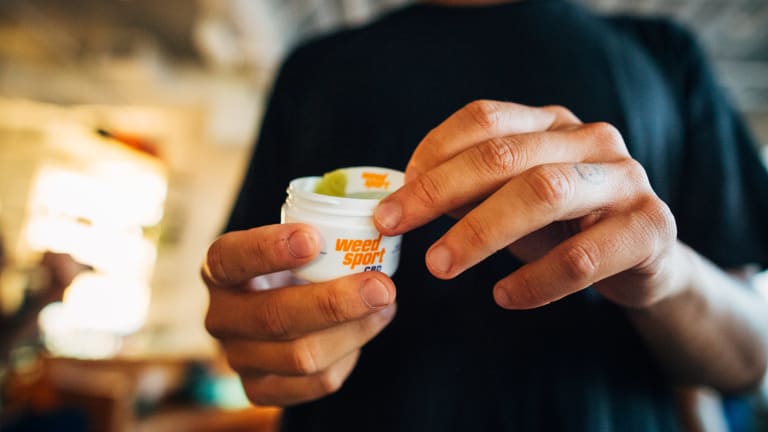In 2019, when John Isner became the first professional tennis player to endorse a cannabidiol (CBD) product—an energy drink called Defy—the reaction was what you might expect within the conservative, tradition-laden sport: confusion, perhaps even mild scorn. At the time, CBD, billed as a treatment for pain and inflammation, was more niche than novel.
Today, CBD products are essentially everywhere. Specialty stores and even some mainstream merchants have filled their shelves with CBD body oils, and intensive creams and beverages, all the way to lattes, deodorants and pet treats.
The skyrocketing trend has also trickled into the tennis world.
Though more widely available than ever, plenty of consumers still have questions. For one: Is it illegal for a pro tennis player—and in turn recreational players—to take CBD? According to the World Anti-Doping Agency, the intake of natural cannabinoids, such as marijuana, synthetic cannabinoids and tetrahydrocannabinol (THC) is off limits. But CBD is an exception, as the plant extract is devoid of the 'high' typically produced by marijuana.
For Isner, a former world No. 8 and longtime American No. 1, partnering with Defy was for more than a paycheck; he’s a fan of the company's products and their impacts. Isner isn't the only one helping evolve the worldview of hemp products, specifically in the athletic world. In 2018, friends David Wilfert and Michaelann Cohlmia created the CBD company WeedSport, which serves as a toolkit to quicker recovery, a healthier mindset and achieving long-term goals.
Whether it’s simply picking up a tennis racquet again or improving your established skills, the co-founders want to keep people moving without limitations and they don’t want them to lose out on what could be a life-changing opportunity because of lingering negative undertones.

